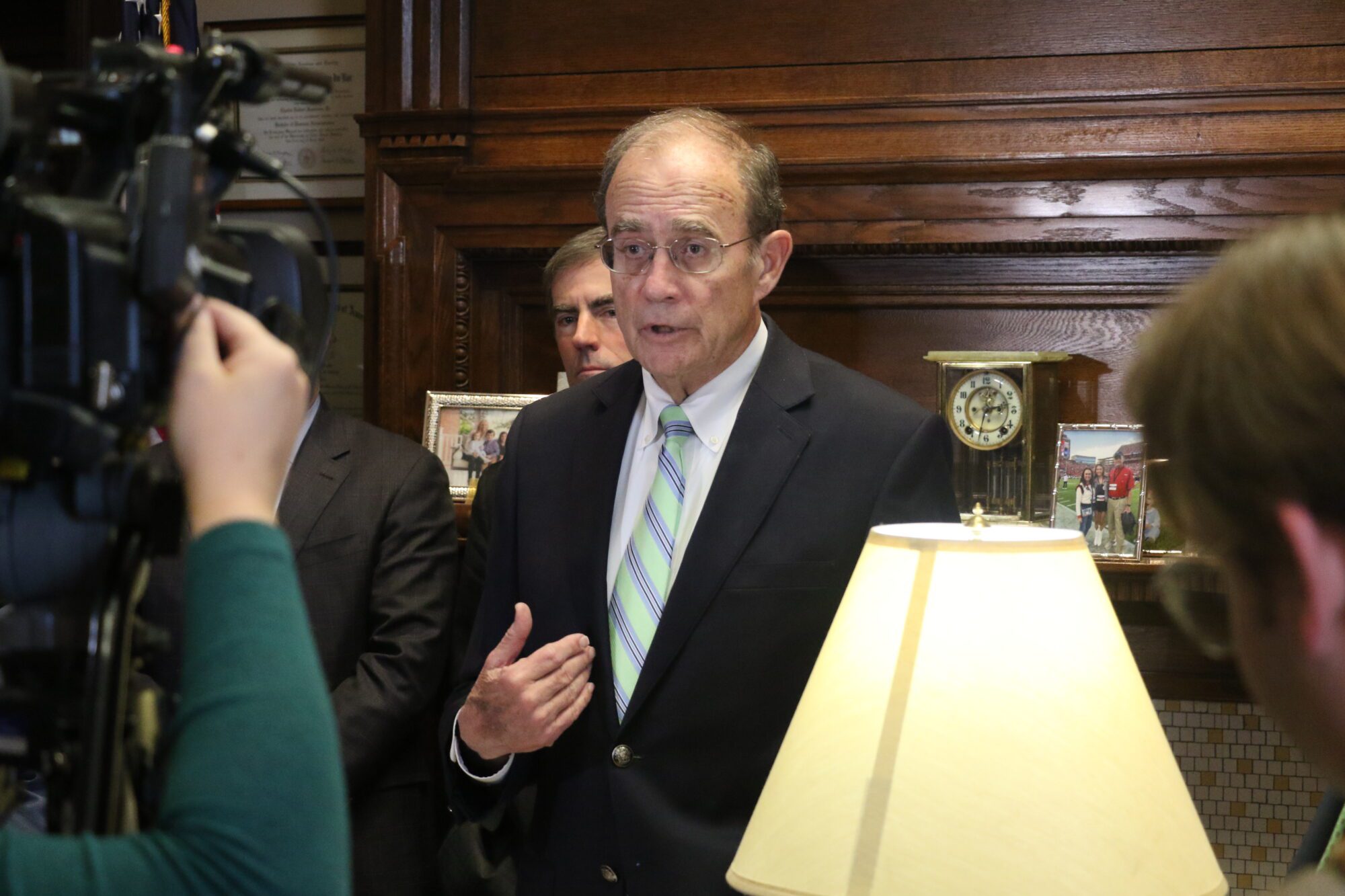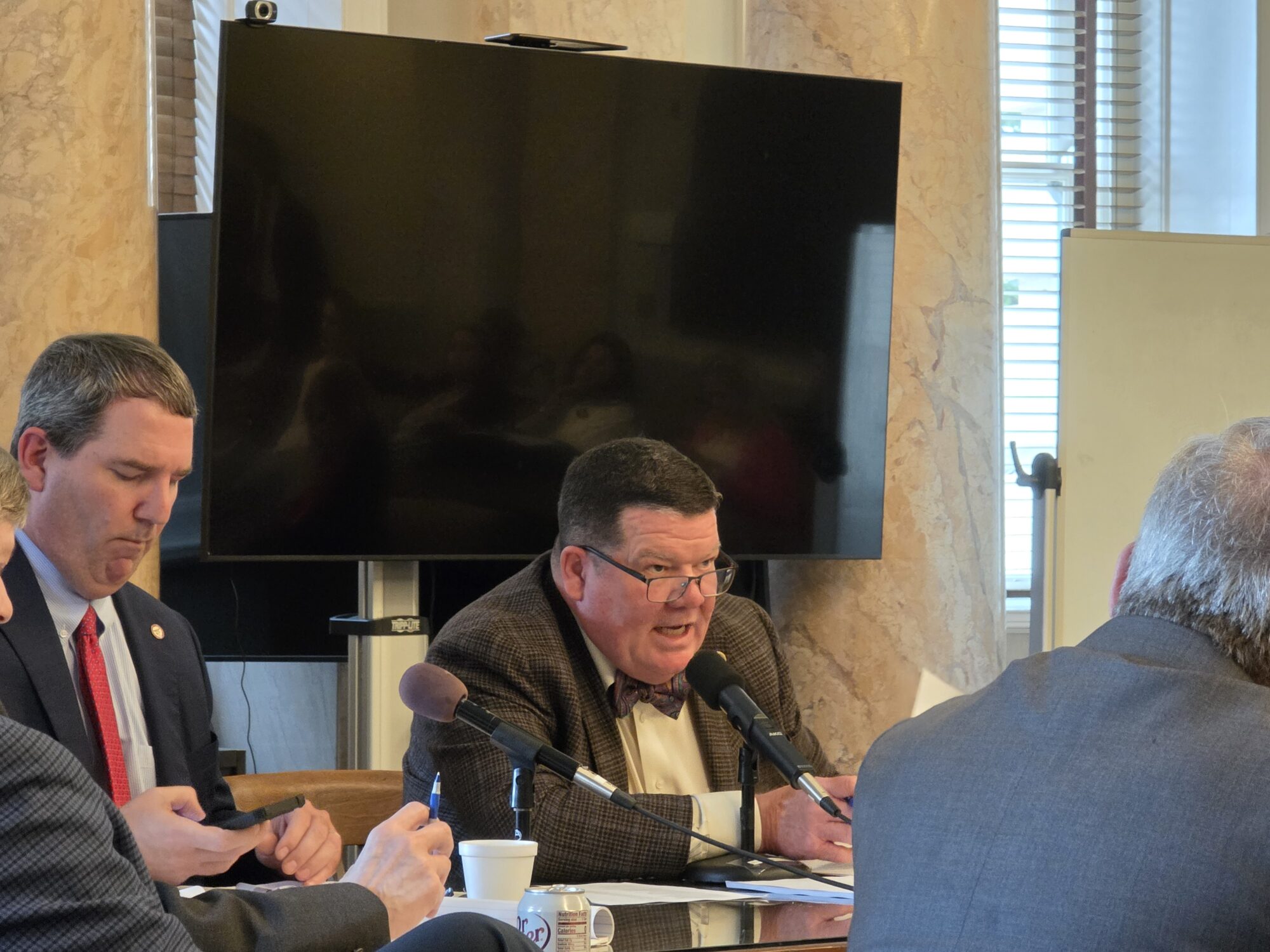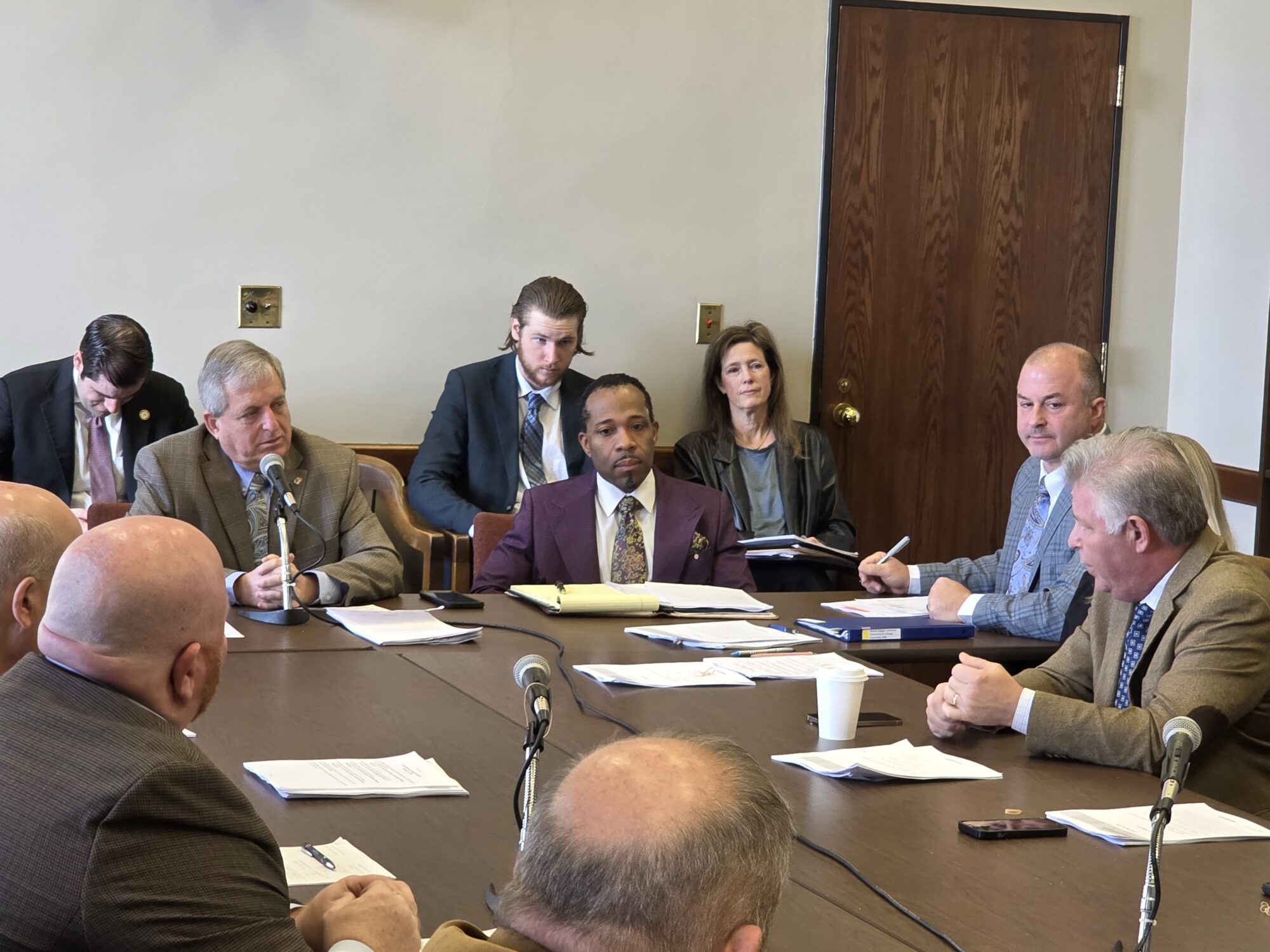
Lt. Gov. Delbert Hosemann addresses the media, March 2025 (Photo by Jeremy Pittari | Magnolia Tribune)
- The tuition assistance programs were being considered as a means to better train the state’s workforce and prepare students for higher paying careers.
Bills that sought to drive students into Mississippi’s community colleges through the promise of “free” tuition died after making their way across the Capitol this session.
The House of Representatives passed HB 1556, called the Mississippi Connecting Career and Technical Education Employability Program. It sought to assist students seeking a degree or certificate in a high-demand, skilled career path. Those applicable career paths were dependent on the workforce ecosystem needs in each region of the state.
On the other side of the Capitol, the Senate passed SB 2527, called the Mississippi Resident Promise Grant Program. This less restrictive program did not require students to seek any particular degree path. Students could have sought an academic degree, career or technical trade certificate, or participate in an allied health program.
Both plans were promoted as “Last Dollar” programs, meaning students would be required to apply for all currently established forms of financial aid before the state funding would become accessible. As noted by State Senator Nicole Boyd (R), 35 states have similar programs in place.
The measures were being considered as a means to better train the state’s workforce and prepare students for higher paying careers.
“Increasing our workforce participation begins with educating and equipping the next generation for life-changing opportunities,” Lt. Gov. Delbert Hosemann (R) told Magnolia Tribune. “Providing ‘Last Dollar’ tuition for community college gives Mississippi students a real chance at success, whether through an associate’s degree or certifications in mechanics, technology, healthcare, commercial truck driving, and more.”
Mississippi’s workforce participation rate remains low, last reported to be 56 percent in February.
“This program has worked well for some of our neighboring states, and as Mississippi experiences record-breaking economic growth, a skilled workforce is essential,” Lt. Governor Hosemann added.
He went on to say he does not plan to give up on trying to pass legislation that will provide that “Last Dollar” to cover tuition.
“I am disappointed it has not passed in the House in the last two legislative sessions and plan to continue advocating for this program,” Hosemann said.
This is not the first time similar legislation has been considered by the Mississippi Legislature. While Hosemann attempted to pass a measure in the 2024 session, efforts go further back.
Former Governor Phil Bryant (R) also championed passing similar legislation during his time in office almost 10 years ago, Mississippi Community College Board Executive Director Kell Smith noted. The 2017 iteration, titled the Mississippi Works Scholars Program, had a focus on technical career paths similar to what passed out of the House this year.
Smith said he believes legislation that helps Mississippians get a good paying job that is in high demand could be beneficial to the state’s economy as well as its community colleges. However, there is a concern.
“Our hope is that if the scholarship were created that it would not have an impact on our operating budget,” Smith explained. “The hope is that, if it were passed and provides $5 million, it would not be a $5 million detriment.”
Pearl River Community College President Dr. Adam Breerwood, like Smith, is concerned how free tuition would affect the state’s community colleges.
“While I recognize the merit of offering free tuition, I am concerned that without adequate funding to accommodate enrollment growth and to address rising property insurance and retirement benefits for our qualified faculty, such a measure may have little impact on the community college system that works tirelessly to prepare a competitive workforce in a global market,” Breerwood said.
He said he hoped that any new funding will not detract from the essential institutional support needed to maximize the intended benefits.
Smith clarified that legislation should not cause a financial issue, adding that the Legislature provides state funds to community colleges through the full-time equivalent system, where 30 hours of a student’s enrollment equates to about $3,300 in state funding.
“So, yeah, if the colleges were to receive additional enrollment, whether it’s through ‘last dollar’ scholarship or through other natural means, that does result in additional funding for that institution,” Smith said.
As a growing number of economic development investments are announced by Governor Tate Reeves (R) in areas all across the state, there is an increased need for a skilled workforce to meet the employment demands of those businesses and industries expanding and relocating to Mississippi.
“The hope there is that [the ‘last dollar’ program] would funnel those students into industries that have high wages and are in high demand. That would be a good thing in my opinion,” Smith stated.
Pearl River Community College is currently seeing a growing interest in programs that can transition students into high paying, skilled careers.
“Over the past few years, we have increased our scholarship budget by nearly $2 million, and our Foundation has provided more scholarship funding than ever before. We’ve also seen substantial growth in our career and technical programs, a trend that is set to continue as more manufacturing jobs return to the United States,” Breerwood said.
However, Breerwood said these programs come with high costs and limited space.
“We strive to keep expenses low while retaining the best faculty available,” he said.
Lawmakers are expected to readdress the “Last Dollar” program in the 2026 legislative session, as indicated by Hosemann.











